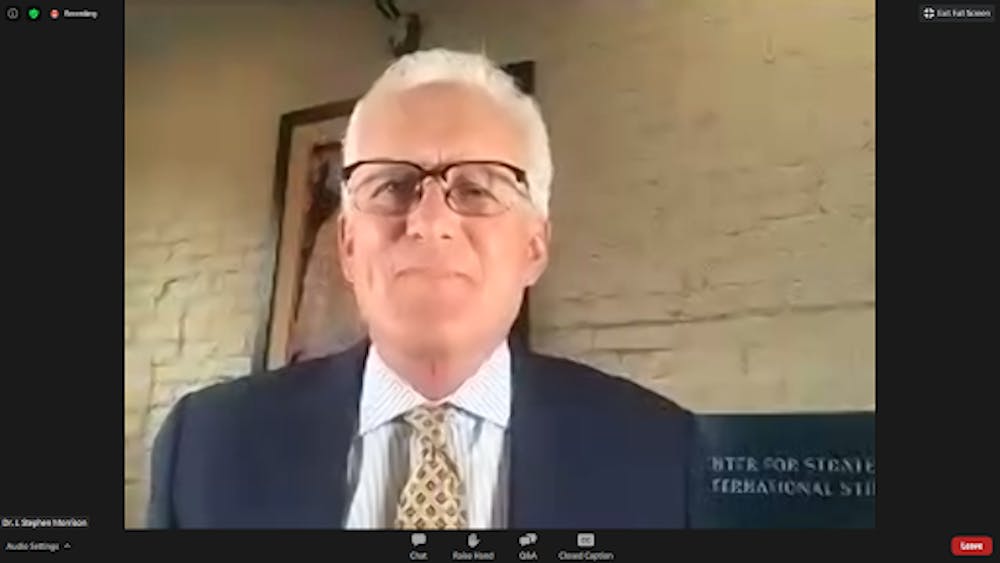For some, diplomacy refers to foreign relations, treaties and other international matters.
But the speakers at this year’s American Academy of Diplomacy’s Joseph J. Sisco Memorial Forum — “Diplomacy in a World of Transnational Crisis” — argued that diplomacy is more than that.
The discussion was held virtually on Sept. 14 by the Office of the Vice Provost for Global Affairs and American Academy of Diplomacy. The AAD is a non-profit organization of about 300 former senior U.S. ambassadors and government officials.
The event featured Vice Provost for Global Affairs Barbara Stephenson; Senior Vice President and Director of the Global Health Policy Center at the Center for Strategic and International Studies J. Stephen Morrison; former U.S. Ambassador to South Korea Kathleen Stephens; former U.S. Ambassador Thomas Pickering; and former U.S. Ambassador to Algeria, Bahrain and Afghanistan Ronald Neumann to share their thoughts on issues such as tensions among the U.S. and other countries and the threat of nuclear weapons.
“There are multiple crises and challenges that currently require more than one nation to solve,” Neumann said.
Pickering agreed and cited the COVID-19 pandemic as an example.
He said the pandemic is not confined to a few nations, but rather its reach extends across the globe, leaving no nation unscathed.
Many panelists stressed that the U.S. must create lasting, effective solutions in collaboration with other nations.
“To be successful, we need both good policy and effective diplomacy,” Stephenson said.




